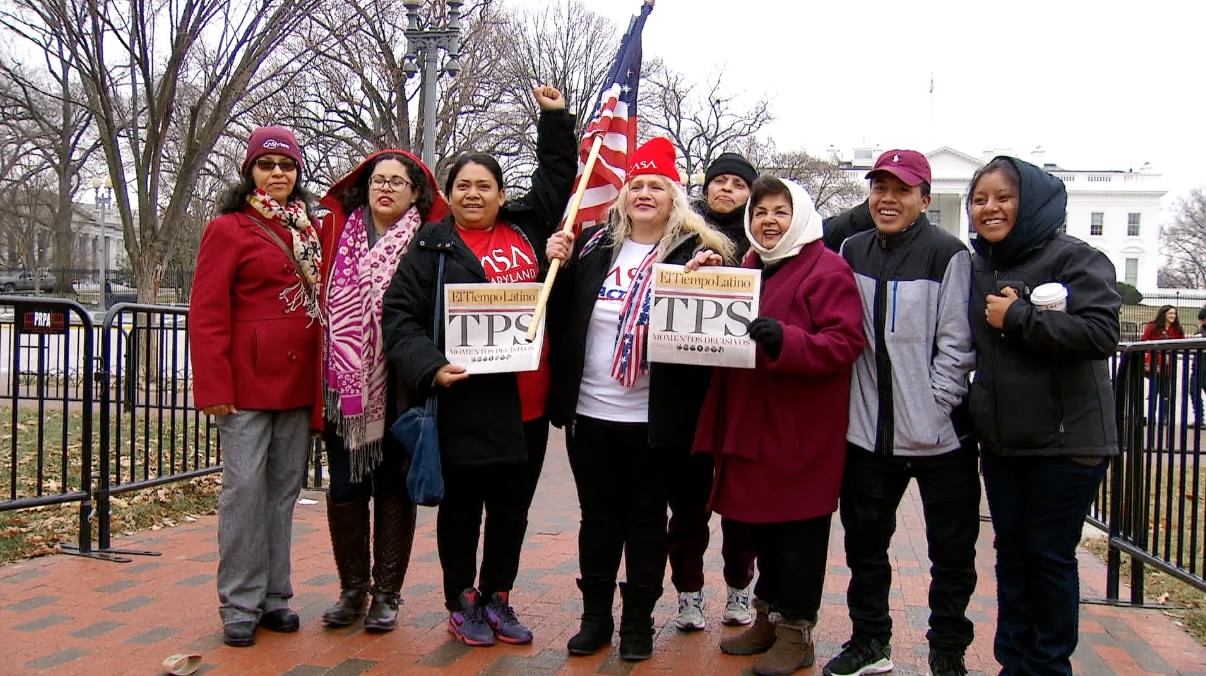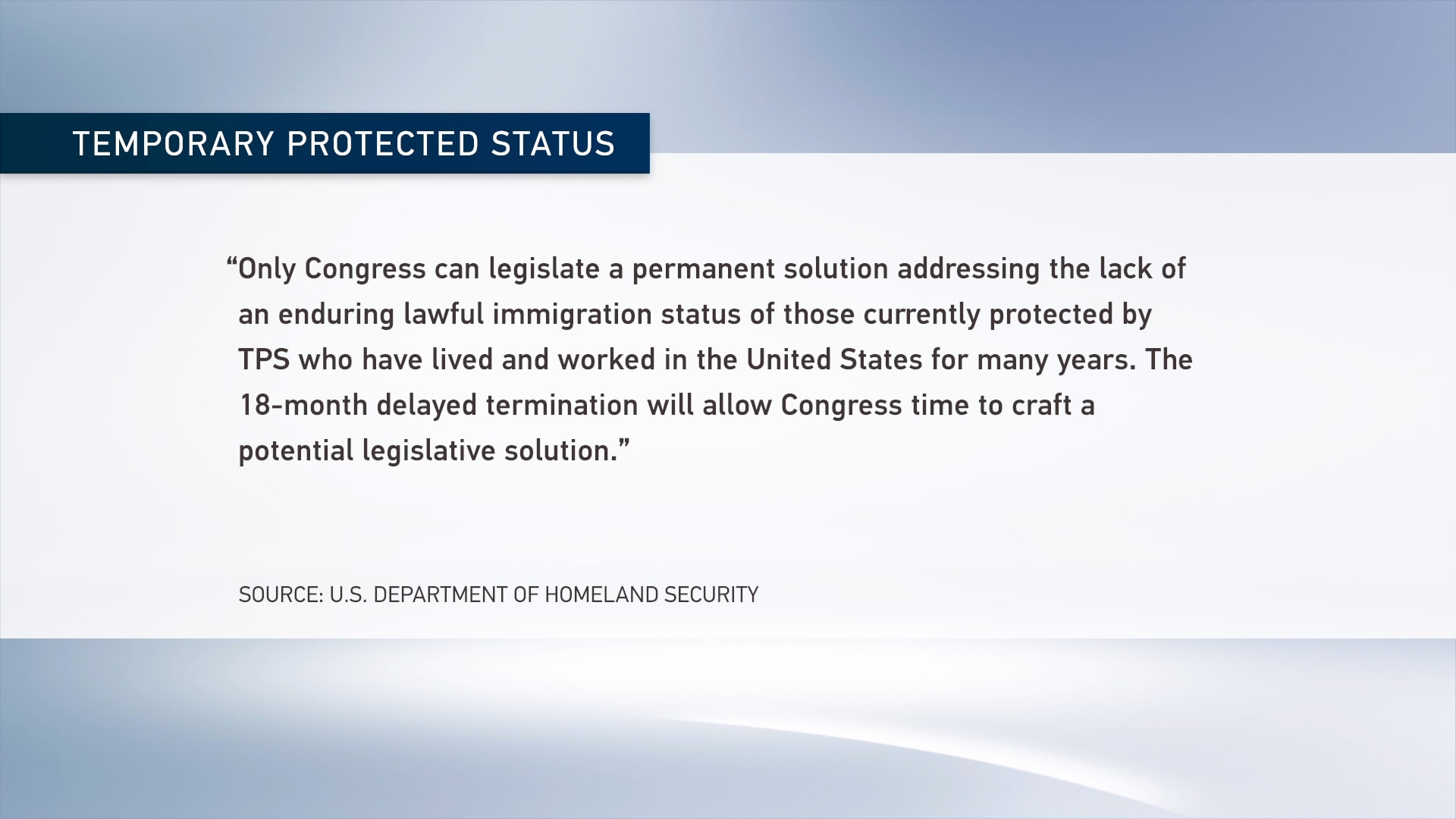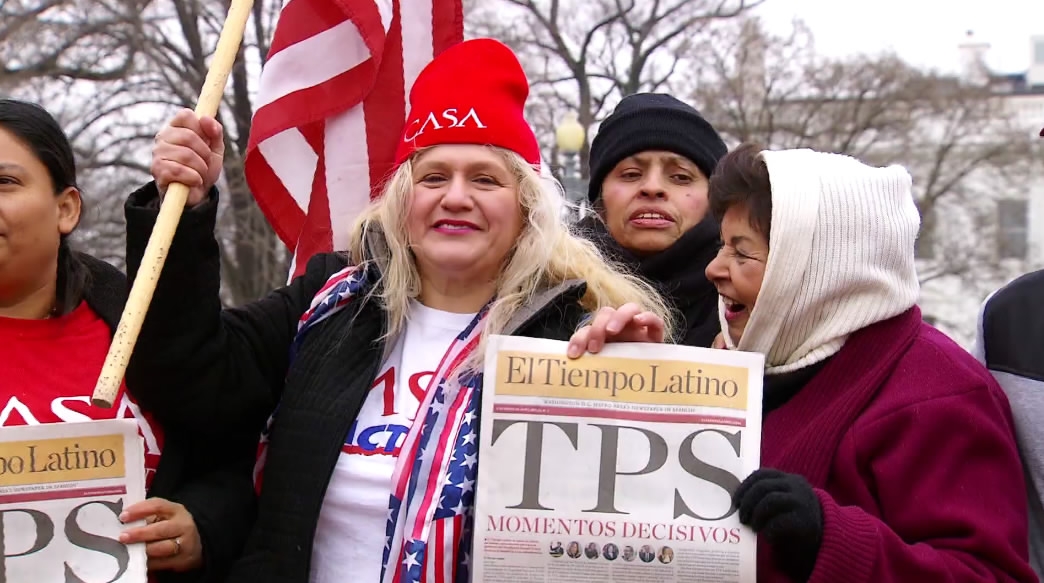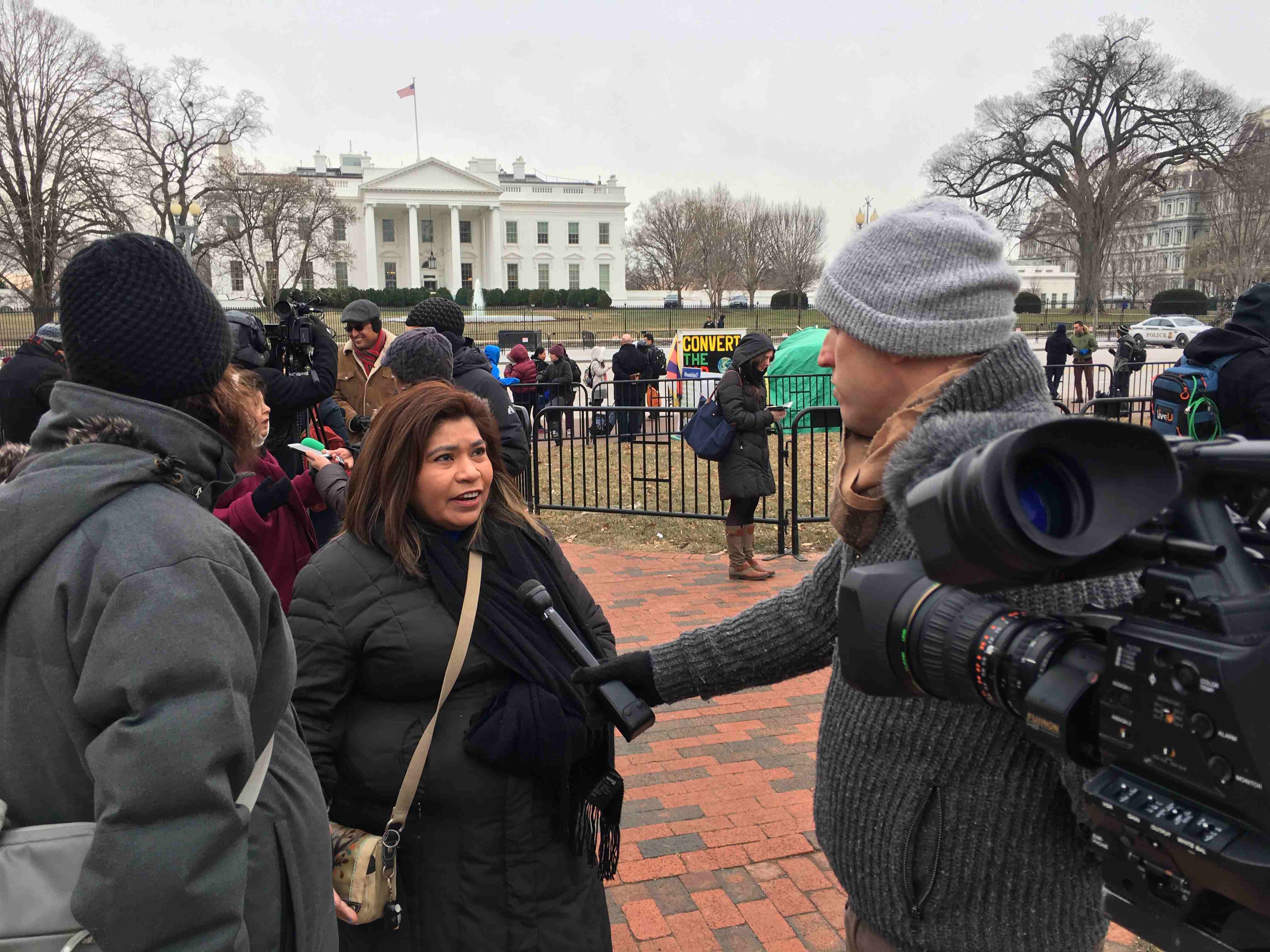
Politics
11:02, 10-Jan-2018
A quarter million Salvadorans in US face deportation uncertainty
By Roee Ruttenberg

Washington announced this week it was ending the protected immigration status for around a quarter of a million Salvadorans living in the US. They had been granted Temporary Protected Status, or TPS, almost 20 years ago, after two powerful earthquakes rocked El Salvador in 2001. Nearly a thousand people were killed, more than 100-thousand homes destroyed, and the local economy was ruined.
The Donald Trump administration says conditions in the Central American nation have now improved, so much so that the Salvadorans should go back. The decision was announced by the US Department of Homeland Security in a statement issued on Monday.
For months, representatives from El Salvador’s embassy in Washington, as well as the country’s foreign minister, Hugo Martinez, had been meeting with Trump officials and US lawmakers, hoping to prevent the termination of TPS. Monday’s announcement was a clear sign their efforts had largely failed.

Salvadorans make-up more than half of the people covered by TPS. In November, the Trump administration announced it was ending protected status for 5,300 Nicaraguans in the US. It gave a six-month extension to the 86,000 Hondurans covered by TPS. Other nationals include Haitians, Nepalese, Somalis, South Sudanese, Sudanese, Syrians and Yemenis, according to a Congressional Research Service report.
40-year-old Berta Soledad was born in El Salvador, but has lived in the US for half of her life. On Monday, she was one of dozens of demonstrators who gathered outside of the White House to protest the announcement. “I don’t consider myself an illegal alien,” Soledad says. “I don’t consider myself terrorist."
Soledad works in an office. She says she pays taxes, like everyone else, and contributes to the US economy. Her eight-year-old daughter was born in the US and is an American citizen.

CGTN Photo
CGTN Photo
"Trump may think he's deporting us. But he is also deporting his own people,” Soledad explains. “There are children who were born here, and this is their country. By ending the TPS, he is also ending the dreams of American citizens."
An estimated 200-thousand children – born in the US – have Salvadoran parents covered by TPS. Many are now old enough to vote. Lindolfo Carballo, a migrants rights activist, urged them to hold lawmakers accountable who voted against their families. “That’s our next step. We have to get these Congressmen out.”
Carballo also warns that the decision may affect El Salvador itself. Thousands of Salvadorans living in the US send remittances to relatives back home. In fact, according to the World Bank, foreign remittances account for approximately 17% of El Salvador’s GDP. And while the majority of Salvadorans living in the US are not TPSers, their potential removal from the American workforce may trigger consequences in El Salvador.
“The living conditions in El Salvador are going to go down,” Carballo explains.”It’s already hard. It's very difficult to live in El Salvador with the wages and salaries that we have there."

CGTN Photo
CGTN Photo
In announcing the decision, the US Department of Homeland Security urged lawmakers to act. "Only Congress can legislate a permanent solution addressing the lack of an enduring lawful immigration status of those currently protected by TPS who have lived and worked in the United States for many years,” the statement read. “The 18-month delayed termination will allow Congress time to craft a potential legislative solution."
Martinez, El Salvador’s foreign minister, says his government will urge the US Congress to find another solution. He expects the number of Salvadorans that will be repatriated by September 2019 to be much less than a quarter of a million. But for those who will be deported, Martinez said his government is planning a “very intensive program” to absorb them, including loans and job training.
Carballo, the activist, says the approach is all wrong. "When you build a temporary house, you get to a point where you have to fix it and improve it, not destroy it,” he says. “You cannot destroy things that are already working. Just fix them, improve them, give them citizenship.”
This is not the first time the Trump administration has punted to the US Congress on the issue of immigration and deportations. The White House is pushing lawmakers to pass comprehensive immigration reform that could affect millions of people living in the US – both lawfully and unlawfully. Critics say the Salvadorans are just the latest group caught up in this political battle.

SITEMAP
Copyright © 2018 CGTN. Beijing ICP prepared NO.16065310-3
Copyright © 2018 CGTN. Beijing ICP prepared NO.16065310-3